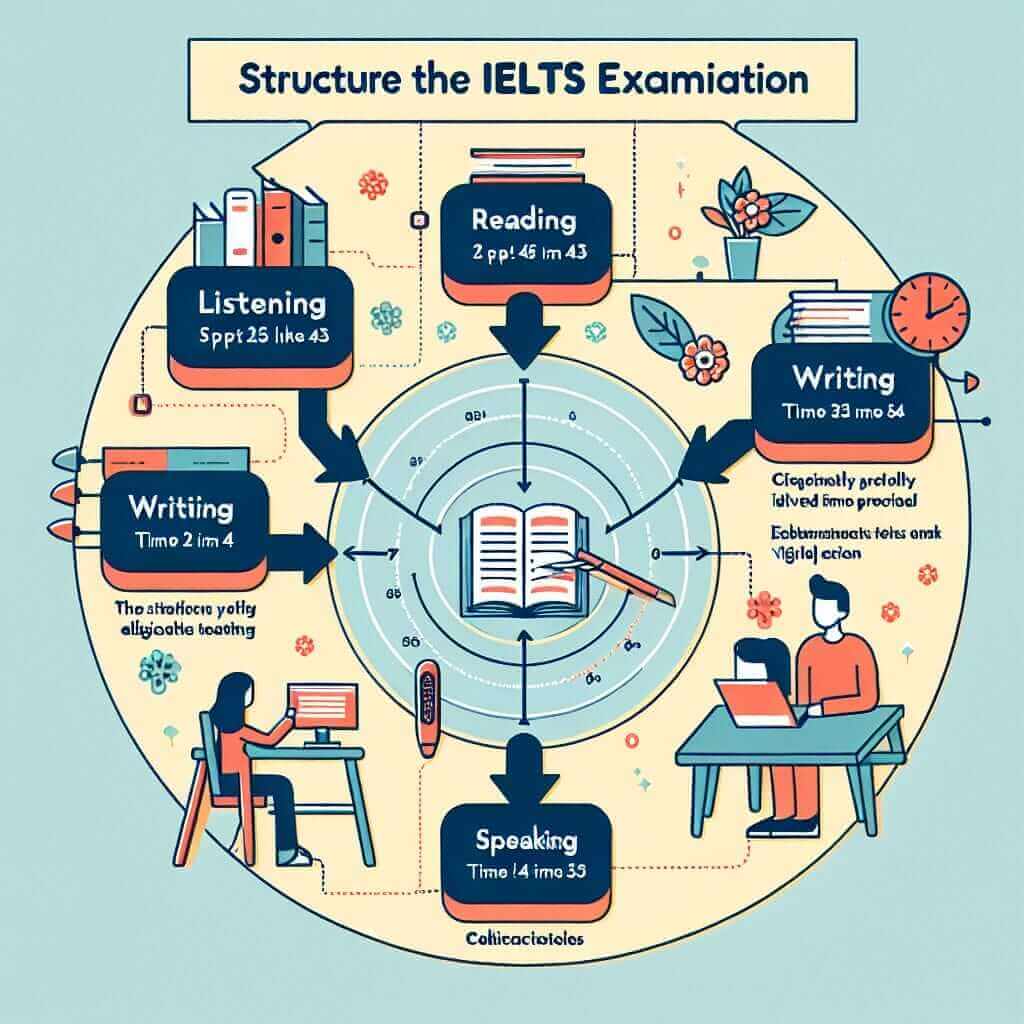As an IELTS instructor with over 20 years of experience, I often encounter the question, “How long does the IELTS test take?” It’s a crucial aspect of exam preparation that can significantly impact your strategy and performance. Understanding the test format and time allocation for each section is vital for effective time management and achieving your desired band score.
This comprehensive guide will delve into the details of the IELTS test duration, covering everything from the overall time commitment to the specifics of each section. Let’s break it down:
IELTS Test Duration: An Overview
The IELTS exam consists of four sections: Listening, Reading, Writing, and Speaking. While the Speaking test may be scheduled separately, the Listening, Reading, and Writing components are always completed on the same day without any breaks. Here’s a breakdown of the total test duration:
Total Test Time: 2 hours and 45 minutes
- Listening: 30 minutes (plus 10 minutes for transferring answers)
- Reading: 60 minutes
- Writing: 60 minutes
- Speaking: 11-14 minutes

Breaking Down Each Section’s Time Limit
Listening
- Duration: 30 minutes for listening to the recordings + 10 minutes to transfer answers to the answer sheet.
- Format: 4 sections with a variety of question types like multiple choice, sentence completion, and diagram labeling.
Key Time Management Tips:
- Use the time given before each recording to preview the questions and anticipate potential answers.
- Focus intently during the recording as you only get one chance to listen.
- Use the 10 minutes transfer time wisely to carefully check your answers.
Reading
- Duration: 60 minutes
- Format: 3 long reading passages with different types of questions similar to the Listening section.
Key Time Management Tips:
- Skim the passages quickly to get the general idea before diving into questions.
- Learn to identify key words in the questions to locate information faster in the passage.
- Allocate time wisely for each passage, aiming to finish within 20 minutes per passage.
Writing
- Duration: 60 minutes
- Format: 2 tasks – Task 1 (150 words minimum) involves describing a graph, chart, or process while Task 2 (250 words minimum) is an essay based on a given topic.
Key Time Management Tips:
- Spend about 20 minutes on Task 1 and 40 minutes on Task 2.
- Plan your essays before you start writing to ensure a clear structure and coherent ideas.
- Allocate some time for reviewing and editing your work.
Speaking
- Duration: 11-14 minutes
- Format: A face-to-face interview with an examiner consisting of three parts: introduction and interview, individual long turn, and a two-way discussion.
Key Time Management Tips:
- Listen carefully to the examiner’s questions and try to answer them fully.
- Speak fluently and clearly, avoiding long pauses or hesitations.
- In Part 2, use the 1 minute preparation time effectively to structure your response.
FAQs about IELTS Test Duration
Q: Can I take breaks during the IELTS test?
A: Unfortunately, no breaks are permitted during the Listening, Reading, and Writing sections. You can only take a break before the Speaking test if it’s scheduled on a different day.
Q: What happens if I don’t finish a section within the time limit?
A: It’s crucial to manage your time effectively for each section. If you don’t complete a section within the given time, you’ll have to move on to the next. This can affect your overall score, so practice pacing yourself during your preparation.
Conclusion: Time Management is Key for IELTS Success
Being aware of the IELTS test duration and understanding how to manage your time efficiently is crucial for achieving a desirable band score. Remember, consistent practice and familiarizing yourself with the test format are key to building confidence and maximizing your performance on test day. Good luck!